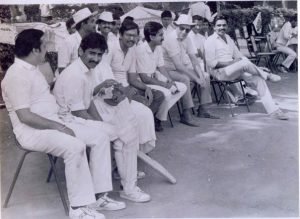A year when advertisers finally began talking about the credibility of content – but there are two sides to the coin.
The year 2011 opened with great expectations. Predictions of an economy growing at close to 8 per cent and the Sensex hovering at 20,000 made advertising pundits optimistic.
The World Cup was reclaimed by India after a gap of 28 years, the IPL had two more teams that were auctioned at Rs. 1,500 crore and Rs. 1,700 crore, the year marked the return of the magnetic KBC and there were more than 180 days of cricket — these were the big platforms for the many launches in the telecom, automobile and consumer electronics space.
The most important cause for optimism, however, was that advertising business ratio to GDP in India was still 0.5 per cent, while it was well over 2 per cent in the developed world. So the potential was huge.
And yet, the hot topic at advertising cocktail parties in 2011 was not really about the business of advertising and its implications. The discussion had moved from the mundane to a more relevant one. It revolved around the volcano of information beamed at us — about its correctness or the lack of it.
The discussion on ‘credibility of content’ obviously started with the news channels and the fare they dished out. It seemed far from responsible when sartorially savvy youngsters questioned the modes of bringing down the inflation rate or overhauling the Indian foreign policy. It was not so much about depth of understanding as a subject but about consuming footage, as an advertising veteran put it.
Frivolousness or lack of accountability is eroding the credibility of news channels. As a result, most news networks are bleeding and the only money they seem to have made is by selling stakes to deep-pocketed industrialists or foreign networks wanting to enter India.
It is believed in corporate corridors that if you credibly control earned editorial communication, then you indirectly control democracy. So there is earned news, owned news and paid news. It is seldom easy to distinguish between the three as the credibility of the spoken, seen and written word differs across all of them.
The Valid Concern
The point is simple. If the medium carrying the message has a credible dissonance with the audience, the receptivity of the advertising message will suffer.
As a result, the impression created will not result in engagement, and hence the communication — no matter how strategic and relevant it might be — will not make the market move positively.
This, in turn, will lead to market shares dipping. As a result, the advertising agency will lose the business for no fault of its own.
Areas needing regulation
The grey areas are news channel presenters becoming larger than the channel. They can make mistakes, they can editorialise and the interviewer can become the interviewee.
To top it all, there is nothing off the record in the audiovisual medium. The presenters have become stars, and many television training institutes have mushroomed across the country. These institutes charge a hefty sum to orient you with the nuances of television broadcasting within months. As a result, you have many bright youngsters saying goodbye to the professions of yesteryear, annoying their parents and wanting to become famous by getting into living rooms.
The Other side
It’s very well to point a finger and say “I am holier than thou”. Being from the advertising business, I feel it is imperative that we realise that there are four fingers pointing back at us. So when we look within, we are not without our own share of cockroaches under our carpet.
So is the advertising business losing its sheen? It’s a classic debate and there are many right answers. All subjective. However, the thin line continues to be “does it make claims it cannot substantiate”? Or, more importantly, use incorrectness to motivate prospective customers to buy things they do not need? There are many cases that fall in no man’s land.
For instance, when India’s most progressive and aggressive telecom company claims of being the fastest, nobody complains, nobody checks, but thousands buy. Those who buy, tell others to buy fast, and this results in a cascading effect that creates the much-needed market momentum for the brand. Till much later, the ASCI (Advertising Standards Council of India) wakes up and fires a salvo and everything is questioned.
And if the fourth estate is to be believed, the communication and product in question is not the fastest Internet service.
So what happens to the thousands who feel conned? Nothing. Nothing at all, as these are the default benefits of a democracy and a just judiciary that takes time to decide.
There are plenty of cases, such as those of fairness creams; toothpastes identifying the germs in your mouth and being endorsed by dental associations; the deodorants which cause a swarm of the opposite gender to cling to you like magnets; coloured and fragrant contraceptives that make you feel that you have been to the moon and back …
The rationale of the creators of this emotional magic is that all this is in good humour and we need to be pleasant and spread happiness. Fair enough. However, there is a thin line between depicting humour and blatant exaggeration of humour to sell a “me too” product.
So, it’s no wonder that we are a Rs. 30,000-crore advertising industry moving a many-billion-dollar market.
As we draw the curtains on 2011 it’s imperative that we ponder a bit before crying foul. Also, a thumbs up to the freedom of the press or else this piece would not have seen the light of day.





